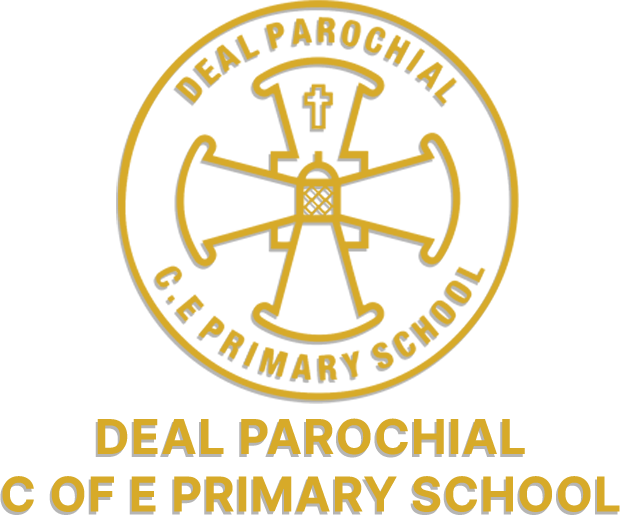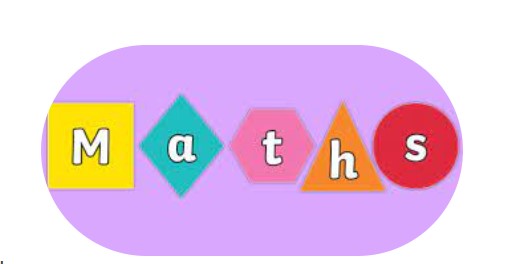 At the centre of our approach to the teaching of mathematics, at Deal Parochial Church of England Primary School, is the unwavering belief that all children have the potential to succeed. We believe that all children need a deep understanding of the mathematics they are learning so that: future mathematical learning is built on solid foundations. We have a ‘Growth Mindset’ attitude to learning that develops a child’s belief in themselves and their ability to succeed.
At the centre of our approach to the teaching of mathematics, at Deal Parochial Church of England Primary School, is the unwavering belief that all children have the potential to succeed. We believe that all children need a deep understanding of the mathematics they are learning so that: future mathematical learning is built on solid foundations. We have a ‘Growth Mindset’ attitude to learning that develops a child’s belief in themselves and their ability to succeed.
Mathematics is a creative and highly inter-connected discipline that has been developed over centuries, providing the solution to some of history’s most intriguing problems. It is essential to everyday life, critical to science, technology and engineering, and necessary for financial literacy and most forms of employment. A high-quality mathematics education therefore provides a foundation for understanding the world, the ability to reason mathematically, an appreciation of the beauty and power of mathematics, and a sense of enjoyment and curiosity about the subject. (Primary Framework Mathematics Sept 2013)
At Deal Parochial we believe in the importance of developing mathematical skills in our children so that they are efficient and confident in their approach to mathematics in a wide range of contexts. A good knowledge and understanding of mathematics provides a way of viewing and making sense of the world. It is a very powerful means of communicating information and as such, plays an important part in all areas of the curriculum. We strive to deliver quality teaching of mathematics enabling pupils to reach their true potential.
Intention
In Maths, our school aims:
- to develop an ability to solve problems, to reason, to think logically and to work systematically and accurately.
- to ensure all children are challenged and encouraged to have a growth mindset. New mathematical concepts are introduced using a ‘Concrete, Pictorial and Abstract’ approach; enabling all children to experience hands-on learning when discovering new mathematical topics and allowing them to have clear models and images to aid their understanding.
- to practise daily arithmetic and basic maths skills to ensure key mathematical concepts are embedded and children can recall this information to see the links between topics in Maths.
Implementation
We will do this by:
- Using White Rose Maths planning and resources across the school to provide continuity and challenge for all children; giving them the opportunity to access fluency, reasoning and problem-solving skills daily in a range of concrete, pictorial & abstract ways.
- Immediate interventions, pre-teaching and ‘Catch Up’ sessions are used to support children to ensure they are ready for their next maths lesson.
- Children are taught using a mastery approach – I do, We do, You do.
- Homework is set to embed children's learning.
- Where possible, links are made with other subjects across the curriculum.
- Basic maths skills are revised and taught regularly. Focusing on key mathematical skills including place value and the four operations.
- Lessons use a variety of resources to support learning so all children can access and enjoy learning.
Impact
The result of this is:
- All children are engaged and challenged and develop an enthusiasm for mathematical learning.
- Children of all abilities can talk about maths and their learning and the links between mathematical topics.
- Because maths is taught using a variety of conceptual and procedural variations, all children are able to access mathematical concepts at their own pace.
- Learning is tracked and monitored to ensure all children make at least good progress.
- There are plenty of opportunities for children to learn and achieve at greater depth in maths lessons.
Maths Curriculum Overview
Year 1
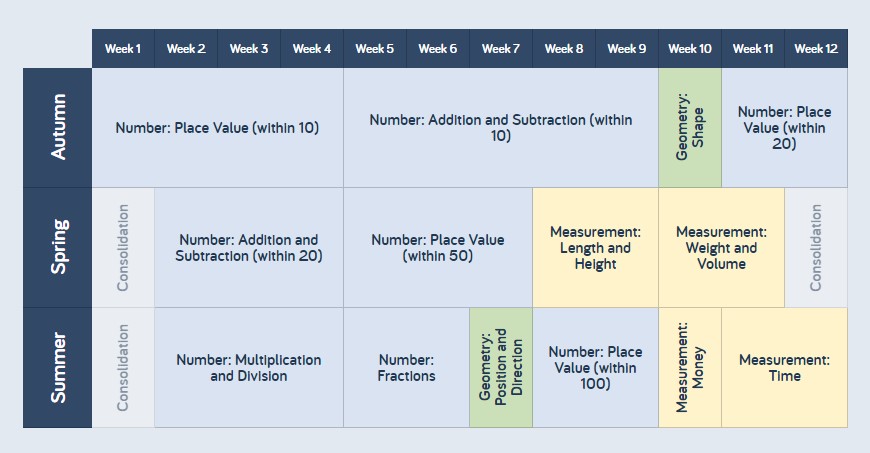
Year 2
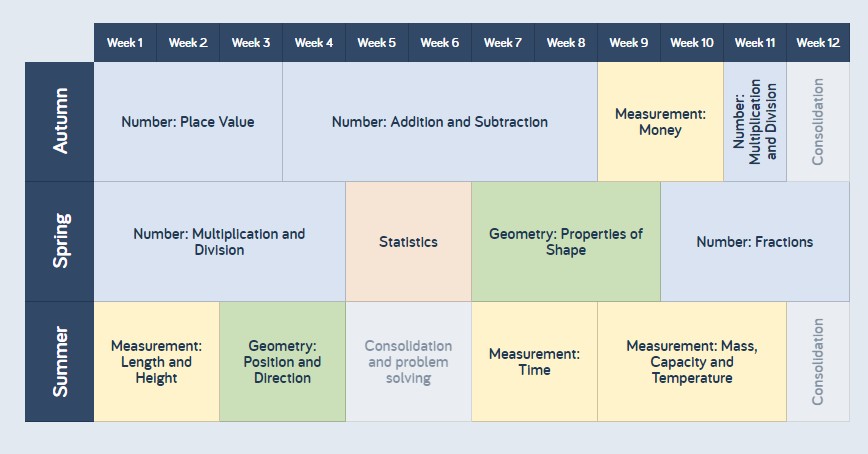
Year 3
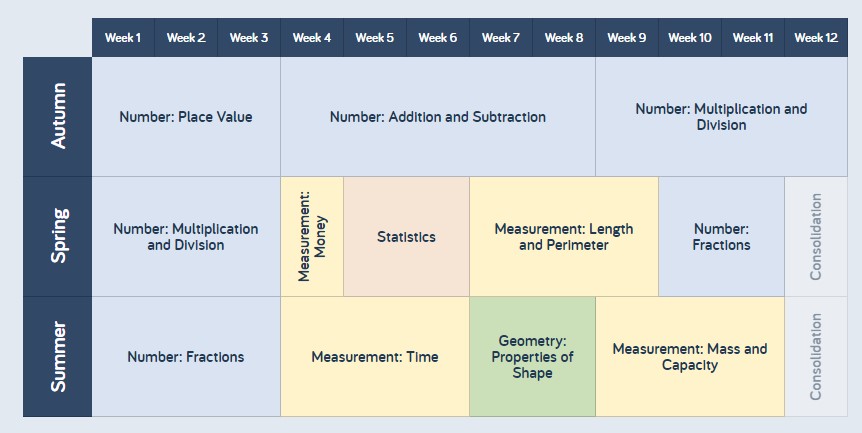
Year 4
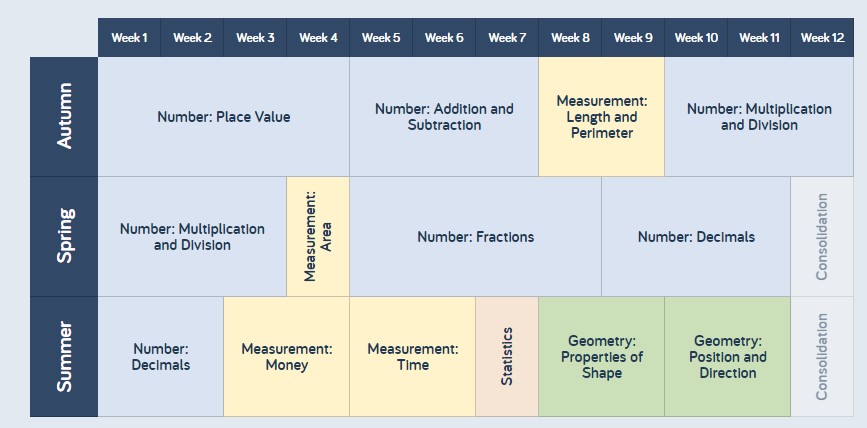
Year 5
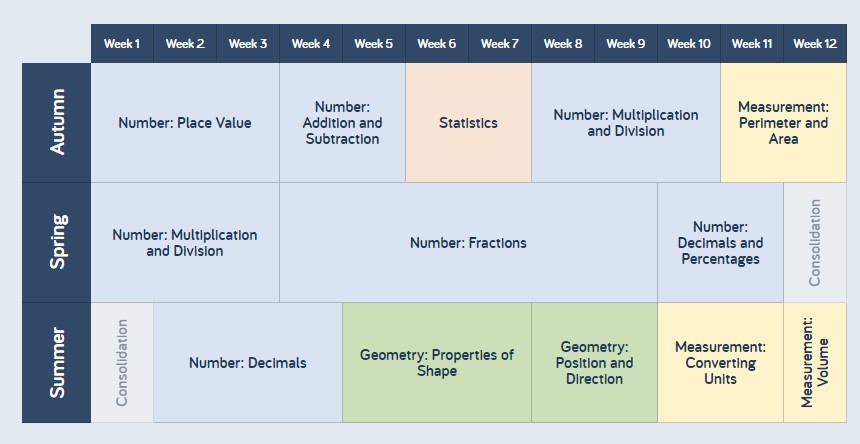
Year 6
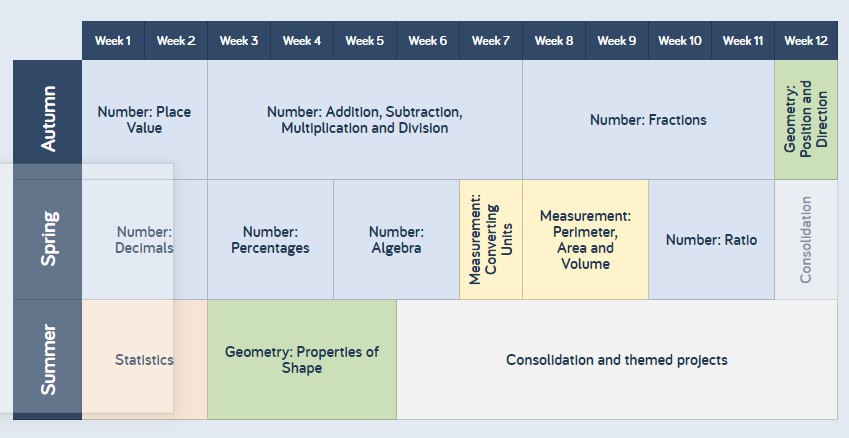
/Curriculum/Policy_documents/Maths_Policy_updated_Jan_2025.docx
/Curriculum/Policy_documents/WRM_calculation_policy_2024_All_year_groups.pdf
